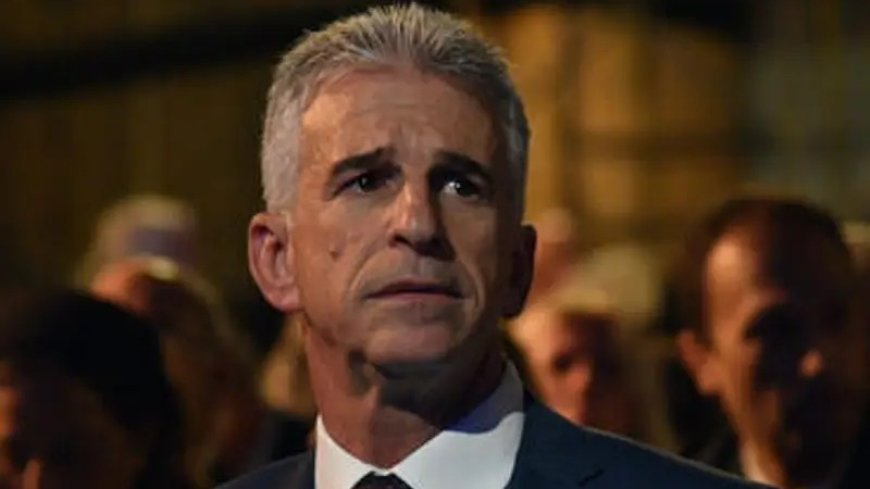Hezbollah Launches Over 320 Rockets at Israeli Military Targets in Retaliation for Commander’s Assassination
In a dramatic escalation of regional tensions, Hezbollah, the Lebanese militant group and political powerhouse, launched a coordinated assault on Israeli military installations early Wednesday morning. The attack, which involved more than 320 rockets and anti-aircraft missiles, marks a significant retaliation following the assassination of Hezbollah commander Fouad Shekar in Beirut’s suburbs.

In a dramatic escalation of regional tensions, Hezbollah, the Lebanese militant group and political powerhouse, launched a coordinated assault on Israeli military installations early Wednesday morning. The attack, which involved more than 320 rockets and anti-aircraft missiles, marks a significant retaliation following the assassination of Hezbollah commander Fouad Shekar in Beirut’s suburbs.
Hezbollah’s offensive targeted eleven strategic Israeli barracks and military bases, including the Miron and Zatun installations, as well as missile launch sites in Nafi Zif and Al Zaura. Additionally, the "Qila" and "Yoaf" barracks, along with the Nefeh base in the occupied Syrian Golan Heights, were struck in the coordinated attack. The group confirmed that all launched missiles hit their designated military targets, effectively crippling several key defense infrastructures.
Hezbollah Declares Initial Phase Successful
Following the attack, Hezbollah announced the successful completion of the first phase of their response to the assassination of Commander Fouad Shekar. “On the day of Imam Hossein Arbain, honoring the freedom fighters and their sacrifices, we executed the first phase of our response to the aggression of the Zionist regime, which led to the martyrdom of Commander Fouad Shekar and others in Beirut’s suburbs,” a Hezbollah spokesperson stated. “Our anti-tank missiles entered Israeli territory and successfully targeted military installations. Further details will be provided in due course.”
Strategic Impact and Military Precision
According to reports from the Associated Press (AP), the targeted Israeli military bases sustained significant damage, disrupting operational capabilities. Hezbollah fighters also engaged Israel’s Iron Dome defense system, challenging its effectiveness and signaling a potential shift in the group’s tactical approach. In a detailed conversation with Al-Mayadeen, a Hezbollah source emphasized the precision and success of the operation, highlighting the strategic timing and multi-directional missile launches that overwhelmed Israeli defenses.
Immediate Israeli Response and Security Measures
In the aftermath of the missile barrage, Israeli authorities swiftly declared a state of emergency for the next 48 hours. Ben Gurion Airport was immediately closed, with all flights canceled to prevent potential further attacks. Additionally, Israeli officials ordered the closure of beaches stretching from Nahariya to Rishon Lezion as a precautionary measure against possible retaliatory strikes.
Heightened Readiness and Future Threats
Hezbollah has asserted that its Islamic resistance is now operating at the highest level of readiness. “It will take some time to complete the operation,” the group stated, warning that any future aggression by the Israeli regime, particularly actions resulting in civilian casualties, would provoke even more severe responses. This declaration underscores Hezbollah’s commitment to maintaining sustained pressure on Israeli targets and deterring further Israeli military actions against Lebanon.
Context and Background
The assassination of Fouad Shekar, a high-ranking Hezbollah commander, has long been a flashpoint in Hezbollah-Israel relations. Shekar was instrumental in orchestrating numerous operations against Israeli interests, and his death is widely perceived by Hezbollah as a deliberate act of aggression by the Israeli intelligence agency Mossad. This incident has reignited longstanding hostilities and raised fears of a broader conflict in the region.
International Reactions and Calls for Restraint
The international community has begun to respond to the latest developments, with several global leaders urging both Hezbollah and Israel to exercise restraint and engage in dialogue to prevent further bloodshed. The United Nations has called for an immediate de-escalation of tensions, emphasizing the need for renewed diplomatic efforts to address the underlying issues fueling the conflict.
Potential for Wider Conflict
Analysts warn that the recent attack could set the stage for a wider regional conflict, drawing in neighboring countries and destabilizing an already volatile Middle Eastern landscape. The possibility of further missile exchanges and ground operations remains high, raising concerns about the humanitarian impact and the potential for significant civilian casualties on both sides.
Looking Ahead
As both Hezbollah and Israeli forces brace for potential further confrontations, the eyes of the world remain fixed on Lebanon and Israel. Diplomatic channels are reportedly open, with international mediators seeking to broker a ceasefire and facilitate negotiations aimed at reducing tensions. However, with both parties demonstrating a willingness to escalate their military postures, the path to peace remains uncertain.













































